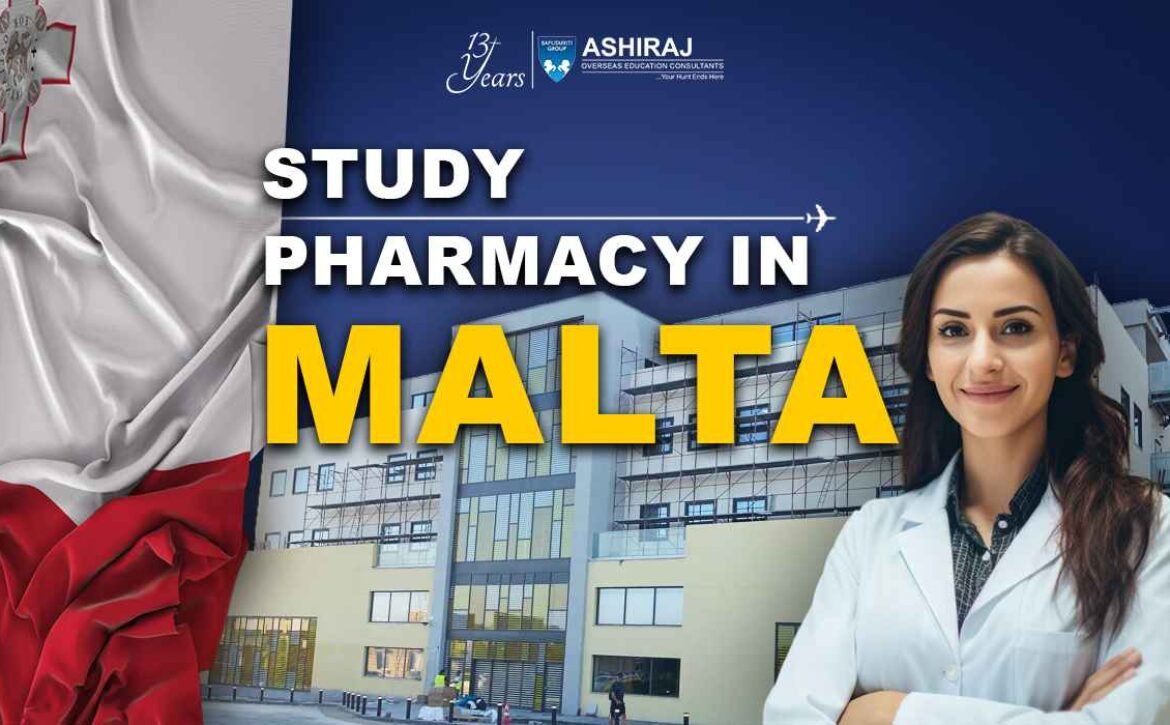
Pharmacy in Malta
Pharmacy in Malta plays a pivotal role in the nation’s healthcare landscape, serving as a vital bridge between medical professionals and patients. Malta boasts a robust pharmaceutical sector, characterized by stringent regulations, advanced healthcare infrastructure, and a commitment to patient well-being. Pharmacies in Malta are not merely dispensers of medication but also serve as centers for health education and consultation, ensuring that individuals receive comprehensive care tailored to their needs.
The pharmacy profession in Malta is governed by strict regulatory standards to uphold safety, efficacy, and quality in pharmaceutical practices. Pharmacists in Malta undergo rigorous training and adhere to international standards, ensuring the provision of accurate medication dispensing and patient counseling. With its emphasis on professionalism and patient-centric care, the pharmacy sector in Malta stands as a cornerstone of the nation’s healthcare system, promoting wellness and ensuring access to essential medications for all residents.
Why to Study Pharmacy in Malta?
- Global Recognition: Pharmacy education in Malta is globally recognized, offering graduates opportunities for career advancement worldwide.
- Advanced Curriculum: Maltese universities provide cutting-edge pharmacy programs, integrating theoretical knowledge with practical experience to prepare students for real-world challenges.
- State-of-the-Art Facilities: Pharmacy schools in Malta boast modern facilities, including laboratories equipped with the latest technology, providing students with hands-on training.
- Multicultural Environment: Malta’s diverse student body fosters a multicultural learning environment, enriching the educational experience and promoting cultural understanding.
- Clinical Experience: Students studying pharmacy in Malta have access to clinical placements in renowned healthcare institutions, gaining invaluable practical skills under the guidance of experienced professionals.
- Research Opportunities: Malta encourages research in pharmaceutical sciences, offering students opportunities to engage in groundbreaking research projects and contribute to advancements in the field.
- Professional Networking: Pharmacy students in Malta have the chance to network with industry professionals and experts through seminars, conferences, and internships, enhancing their career prospects.
- Quality of Life: Malta’s Mediterranean climate, rich history, and vibrant culture provide an exceptional quality of life for students, making it an attractive destination for studying pharmacy.
Overall, studying pharmacy in Malta offers a comprehensive education, diverse experiences, and ample opportunities for personal and professional growth, making it an ideal choice for aspiring pharmacists.
Top Universities to Study Pharmacy in Malta
Rank | University | QS World University Rankings 2023 | Type of University | Average Annual Fees | Programs Offered |
1 | University of Malta | 501-510 | Public | €1,000 – €4,000 | Bachelor of Pharmacy, Master of Pharmacy |
2 | Malta College of Pharmacy | 651-700 | Private | €3,000 – €6,000 | Bachelor of Science in Pharmaceutical Science |
3 | American University of Malta | 701+ | Private | €6,000 – €9,000 | Bachelor of Science in Pharmacy, Doctor of Pharmacy |
4 | St. Martin’s Institute of Higher Education | Not Ranked | Private | €4,000 – €7,000 | Diploma in Pharmacy Practice, Bachelor of Pharmacy |
5 | Global College Malta | Not Ranked | Private | €5,000 – €8,000 | Diploma in Pharmacy, Bachelor of Pharmacy |
Studying pharmacy in Malta offers a diverse range of institutions, each with its unique offerings and strengths. The University of Malta, as the top-ranked institution, provides both undergraduate and postgraduate pharmacy programs at affordable fees, making it accessible to students from various backgrounds. The Malta College of Pharmacy, although private, offers competitive programs and focuses on hands-on training. The American University of Malta caters to international students with its diverse curriculum and higher tuition fees. Additionally, St. Martin’s Institute of Higher Education and Global College Malta provide alternative pathways for pharmacy education, catering to students’ diverse needs and preferences.
Course Curriculum for Pharmacy in Malta
- Foundational Sciences: Pharmacy programs in Malta cover fundamental subjects such as chemistry, biology, and anatomy to build a strong scientific foundation for understanding pharmaceutical principles.
- Pharmacology: Students delve into the study of drugs and their effects on the body, including mechanisms of action, side effects, and therapeutic uses, preparing them for safe and effective medication management.
- Pharmaceutical Formulation: The curriculum includes coursework on the development and preparation of various pharmaceutical dosage forms, ensuring students understand the principles of drug formulation and delivery.
- Clinical Pharmacy: Students learn to apply their knowledge in real-world settings through clinical rotations and internships, gaining hands-on experience in patient care, medication therapy management, and pharmaceutical counseling.
- Pharmacy Practice Management: The program equips students with skills in pharmacy operations, healthcare ethics, and regulatory compliance, preparing them for roles in pharmacy management and administration.
- Research and Innovation: Pharmacy education in Malta emphasizes research methodologies and encourages students to engage in research projects, fostering innovation and critical thinking in pharmaceutical sciences.
- Interprofessional Collaboration: Students learn to collaborate with other healthcare professionals, promoting interdisciplinary teamwork for optimal patient care outcomes.
- Professional Development: The curriculum includes modules on professional ethics, communication skills, and lifelong learning, preparing graduates to adapt to evolving healthcare environments and uphold the highest standards of Pharmacy in Malta.
Eligibility Criteria & Admission Requirements for MS in Pharmacy in Malta
- Language Proficiency: Applicants must demonstrate proficiency in English through standardized tests such as IELTS or TOEFL. The minimum scores required for IELTS are typically 6.5 to 7.0, while for TOEFL, scores range from 80 to 100.
- Standardized Tests: Some universities may require applicants to submit scores from standardized tests like GRE or GMAT. The minimum scores vary between institutions but typically range from 300 to 320 for GRE and 600 to 700 for GMAT.
- Academic Credentials: Applicants must hold a relevant academic background, typically a bachelor’s degree in pharmacy or a related field. Transcripts demonstrating academic achievement are required for evaluation.
- Passport & Student Visa: International applicants must possess a valid passport and obtain a student visa to study in Malta. The visa application process may require additional documentation, including proof of financial means and acceptance into a recognized educational institution.
- Work Experience: While not always mandatory, some pharmacy programs in Malta may prefer applicants with relevant work experience in the pharmaceutical or healthcare industry. Experience in pharmacy practice or research can strengthen an applicant’s candidacy.
Table: Standardized Test Scores
Test | Minimum Score |
IELTS | 6.5 – 7.0 |
TOEFL | 80 – 100 |
GRE | 300 – 320 |
GMAT | 600 – 700 |
Meeting these eligibility criteria ensures that applicants are well-prepared for the rigorous academic demands of pharmacy programs in Malta, fostering a competent and diverse cohort of students dedicated to advancing Pharmacy in Malta.
Documents Required for Studying Pharmacy in Malta
- Passport: A valid passport is essential for international applicants, serving as identification and proof of citizenship.
- Letters of Recommendation (LOR): Two or more LORs from academic or professional references attest to the applicant’s character, academic abilities, and suitability for pharmacy studies.
- Statement of Purpose (SOP): The SOP provides insights into the applicant’s motivations, goals, and aspirations in pursuing pharmacy education in Malta, highlighting their passion and commitment.
- Curriculum Vitae (CV): A comprehensive CV outlines the applicant’s academic background, work experience, extracurricular activities, and achievements, showcasing their qualifications and capabilities.
- Official High School Transcripts/Certificates: Transcripts and certificates from high school or equivalent institutions validate the applicant’s academic performance and qualifications for higher education.
- Work Experience Certificate: If applicable, a work experience certificate verifies the applicant’s professional experience in pharmacy or related fields, demonstrating their practical knowledge and skills.
- Proof of Financial Resources: Documentation such as bank statements, sponsorship letters, or scholarship awards demonstrate the applicant’s ability to finance their education and living expenses while studying Pharmacy in Malta.
Submitting these documents ensures that applicants meet the requirements and demonstrate their readiness to pursue pharmacy education in Malta, contributing to the advancement of Pharmacy in Malta.
Admission Process for Pharmacy in Malta
- Research and Choose Institutions: Research pharmacy programs offered by universities in Malta, considering factors such as curriculum, faculty, and accreditation to select the most suitable institution.
- Review Eligibility Criteria: Familiarize yourself with the eligibility criteria for pharmacy programs in Malta, including academic requirements, language proficiency tests (IELTS/TOEFL), and standardized test scores (GRE/GMAT).
- Prepare Required Documents: Gather necessary documents, including passport, letters of recommendation (LOR), statement of purpose (SOP), curriculum vitae (CV), official transcripts, work experience certificates, and proof of financial resources.
- Submit Online Application: Complete the online application form provided by your chosen institution, ensuring accuracy and completeness of information provided.
- Pay Application Fees: Pay the required application fees, if applicable, as specified by the university.
- Await Admission Decision: After submitting your application, wait for the university’s admission committee to review your materials and make an admission decision.
- Visa Application: Upon receiving an offer of admission, proceed with the student visa application process, submitting required documentation to the Maltese embassy or consulate in your country.
- Enroll and Begin Studies: Once your visa is approved, finalize enrollment procedures, including payment of tuition fees and registration for classes, and prepare to begin your pharmacy studies in Malta, contributing to the growth and development of Pharmacy in Malta.
“Education is the most powerful weapon which you can use to change the world.”
Nelson Mandela
Cost of Pharmacy Course in Malta
- Tuition Fees: The average annual tuition fees for pharmacy programs in Malta range from €1,000 to €9,000, depending on the university, program level, and residency status of the student.
- Living Expenses: Estimated living expenses, including accommodation, food, transportation, and personal expenses, vary depending on the student’s lifestyle and location, typically ranging from €6,000 to €10,000 per year.
- Books and Supplies: Budget for textbooks, laboratory supplies, and other study materials, which may amount to €500 to €1,000 per academic year.
- Health Insurance: International students are required to have health insurance coverage during their studies in Malta, with premiums averaging around €300 to €500 per year.
- Additional Costs: Consider additional expenses such as visa application fees, travel costs, extracurricular activities, and personal leisure, which can vary based on individual preferences and circumstances.
- Scholarship Opportunities: Explore scholarship options and financial aid programs offered by universities, government agencies, and private organizations to offset tuition and living expenses.
Understanding the cost of studying pharmacy in Malta helps students plan their finances effectively and make informed decisions about pursuing Pharmacy in Malta while ensuring a fulfilling educational experience.
Scholarships for Pharmacy Courses in Malta
Scholarship Name | Amount | Application Deadline |
Malta Government Scholarships | Full tuition fees coverage + stipend for living expenses | Varies; typically March-April |
University-specific Scholarships | Varies; partial to full tuition coverage | Varies by institution |
Erasmus+ Scholarship | Varies; covers travel, living expenses, and tuition | Varies; typically February-March |
Fulbright Scholarships | Varies; covers tuition, living expenses, and travel | Varies; typically October-December |
Commonwealth Scholarships | Varies; covers tuition, living expenses, and travel | Varies; typically September-October |
Scholarships provide valuable financial assistance to students pursuing pharmacy education in Malta, alleviating the burden of tuition fees and living expenses. The Malta Government Scholarships offer comprehensive coverage, including full tuition fees and stipends for living expenses, with applications typically due in March-April. University-specific scholarships vary in amount and eligibility criteria, providing partial to full tuition coverage and varying application deadlines. The Erasmus+ Scholarship supports international exchange programs, covering travel, living expenses, and tuition, with application deadlines typically in February-March. Fulbright and Commonwealth Scholarships offer varying levels of financial support for tuition, living expenses, and travel, with application deadlines spanning from October to December and September to October, respectively. Exploring scholarship opportunities enables students to pursue their academic goals in Pharmacy in Malta while minimizing financial barriers.
Career Opportunities After Pharmacy in Malta
Job Profile | Average Salary (per annum) |
Hospital Pharmacist | €25,000 – €40,000 |
Community Pharmacist | €30,000 – €45,000 |
Pharmaceutical Sales Representative | €25,000 – €35,000 |
Regulatory Affairs Specialist | €35,000 – €50,000 |
Clinical Research Associate | €35,000 – €55,000 |
Pharmacy graduates in Malta have a plethora of career opportunities available to them, spanning various sectors within the pharmaceutical industry. Hospital pharmacists work within healthcare settings, dispensing medications, providing patient counseling, and collaborating with healthcare teams, with average salaries ranging from €25,000 to €40,000 per annum. Community pharmacists operate retail pharmacies, offering medication dispensing services, health consultations, and health promotion activities, with average salaries ranging from €30,000 to €45,000 annually. Pharmaceutical sales representatives promote pharmaceutical products to healthcare professionals, earning average salaries between €25,000 and €35,000 per year. Regulatory affairs specialists ensure compliance with pharmaceutical regulations and standards, earning salaries ranging from €35,000 to €50,000 per annum. Clinical research associates conduct clinical trials and research studies, earning average salaries between €35,000 and €55,000 annually. Pursuing a career in Pharmacy in Malta opens doors to diverse and rewarding professional pathways, with opportunities for growth and advancement in the dynamic pharmaceutical industry.
Frequently Asked Questions About Pharmacy in Malta
The eligibility criteria typically include academic qualifications, language proficiency (IELTS/TOEFL), standardized test scores (GRE/GMAT), and submission of required documents.
Yes, there are scholarships offered by the Malta government, universities, and international organizations such as Erasmus+ and Fulbright, covering tuition fees, living expenses, and sometimes travel costs.
The average cost includes tuition fees, living expenses, books, and other miscellaneous expenses, which can range from €7,000 to €15,000 per year, depending on the university and lifestyle choices.
Typically, a pharmacy degree in Malta takes four to five years to complete for undergraduate programs and an additional one to two years for postgraduate studies or specialization.
Pharmacy graduates in Malta have diverse career opportunities, including roles as hospital pharmacists, community pharmacists, pharmaceutical sales representatives, regulatory affairs specialists, and clinical research associates.
Yes, international students are allowed to work part-time during their studies in Malta, subject to certain restrictions and regulations set by the government.
To apply for a student visa, you need to submit the required documents, including an acceptance letter from a Maltese university, proof of financial means, health insurance, and a valid passport, to the Maltese embassy or consulate in your home country.
Yes, there is a demand for pharmacists in Malta due to the growing healthcare sector and an aging population, creating opportunities for employment and career advancement in various pharmacy-related fields.
Pharmacy programs in Malta are accredited by the Malta Council for the Recognition of Higher Education Institutions (MCRHEI) and must meet stringent quality standards to ensure educational excellence and professional competency.
Yes, pharmacy degrees obtained from recognized universities in Malta are generally transferable to other countries, but it’s advisable to check with the relevant professional regulatory bodies in the destination country for specific requirements and regulations.




